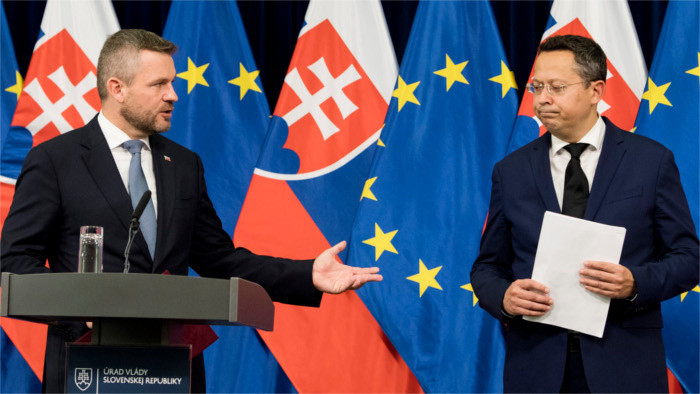The Cabinet has given up on the idea of a balanced budget for the time being. It may be feasible as of 2021 but next year the budget is expected to be €480 million in the red after a worse than expected performance this year. "It's the second pre-election budget and, unlike in 2016, an agreement between the three coalition parties is needed now. We planned a balanced budget for this year, but 0.68 percent of GDP is still the lowest all-time deficit. We still maintain healthy public finances," said Finance Minister Ladislav Kamenický, adding that his analysts had identified potential savings worth a total of €750 million in the processes of individual ministries and only measures equalling €118 million had been enacted thus far.
The growth of the Slovak economy should slow down this year to 2.4 percent of GDP chiefly due to a weaker performance of the Eurozone but some experts argue that macroeconomic developments are not responsible for the current hole in the state coffers. "Much of the €1.1 billion overall deviation in 2019 is due to overestimated non-tax revenues and the approval of tax revenues based on legislation that has been scrapped or hasn't been implemented, "said Ivan Šramko, chairman of the Budgetary Responsibility Council which is the independent fiscal watch dog. He adds that every year since its inception, the council has pointed out in its assessments that the budget repeatedly overestimates non-tax revenues and underestimates the expenditures of local governments and health care. "Some revenues budgeted for next year will not materialize and some expenditures are likely to be higher. We anticipate the risks in the area of non-tax revenues especially over-estimated dividend income, wage expenditures and transfers at the self-governing level and current transfers and state budget expenditure," said Ivan Šramko. The Council also calls into question the high revenue from the sale of emission allowances, the increase in revenue from the emergency stock charge and the revenue from the sale of assets expected by the budget in 2020. The total negative impact of overvalued non-tax revenues is close to €300 million. According to Šramko, there is also a risk of uncertainty as to whether Parliament will eventually approve a rate hike for tobacco products to the extent approved by the government.
Representatives of employers, in particular the Association of Employers Unions (AZZZ) and the Republican Union of Employers (RUZ), plus the Association of Slovak Towns and Villages (ZMOS) had reservations about the draft, while trade unions and the Association of Industrial Unions expressed approval. Employers view the volume of the deficit as inappropriate, pointing to more rapid growth in spending than in income. They described the draft budget as a pre-election one, as it includes no consolidation measures. Local governments are concerned about lower stability in the budget as well.
The Finance Ministry sent an analytical view on the budget to the European Commission which in early November will issue its regular prognosis based on which it will assess the budgets of all EU-member countries.


